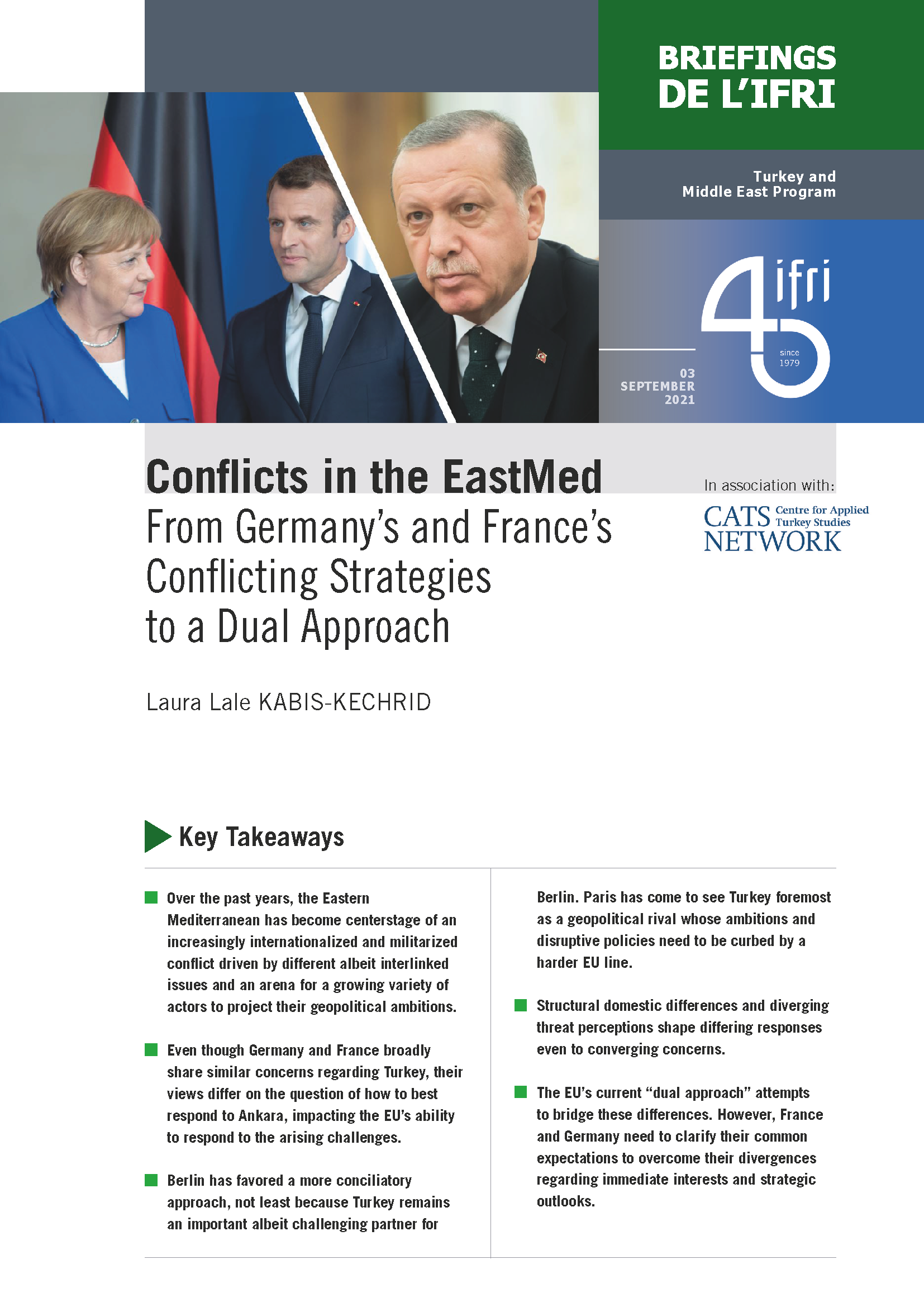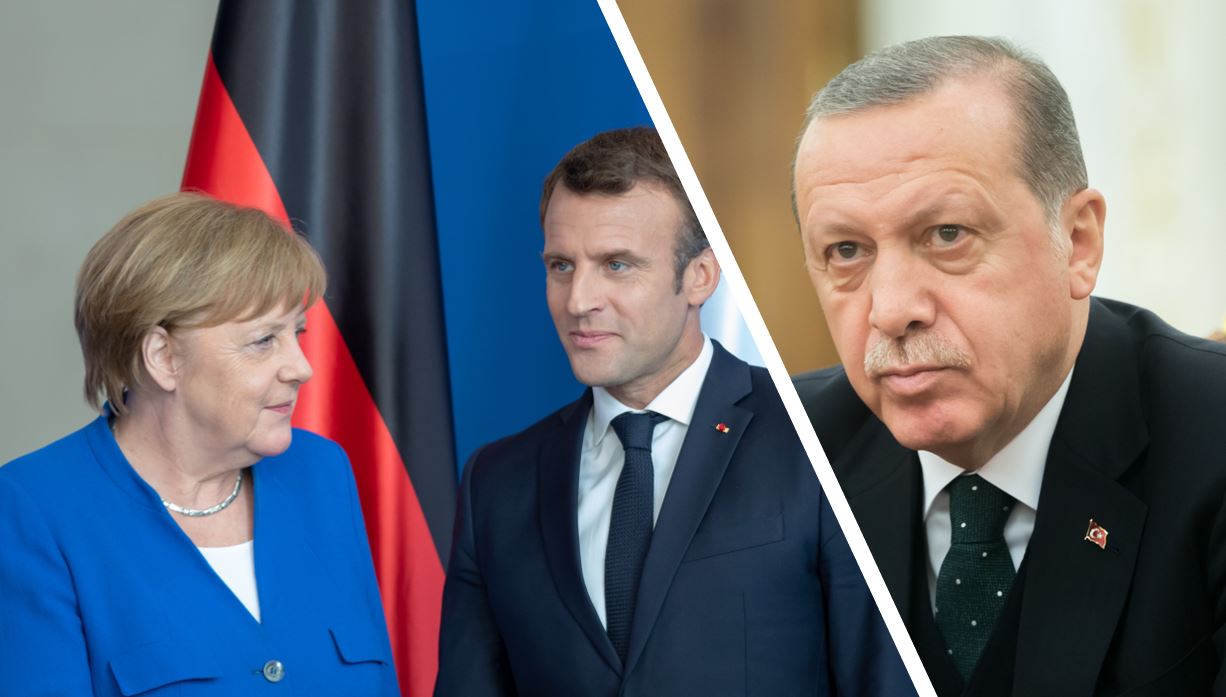Conflicts in the EastMed: From Germany’s and France’s Conflicting Strategies to a Dual Approach


- Even though Germany and France broadly share similar concerns regarding Turkey, their views differ on the question of how to best respond to Ankara, impacting the Europenan Union’s (EU) ability to respond to the arising challenges.
- Berlin has favored a more conciliatory approach, not least because Turkey remains an important albeit challenging partner for Berlin. Paris has come to see Turkey foremost as a geopolitical rival whose ambitions and disruptive policies need to be curbed by a harder EU line.
- Structural domestic differences and diverging threat perceptions shape differing responses even to converging concerns.
- The EU’s current “dual approach” attempts to bridge these differences. However, France and Germany need to clarify their common expectations to overcome their divergences regarding immediate interests and strategic outlooks.

Available in:
Regions and themes
ISBN / ISSN
Share
Download the full analysis
This page contains only a summary of our work. If you would like to have access to all the information from our research on the subject, you can download the full version in PDF format.
Conflicts in the EastMed: From Germany’s and France’s Conflicting Strategies to a Dual Approach
Related centers and programs
Discover our other research centers and programsFind out more
Discover all our analyses
RAMSES 2025. Between Powers and Powerlessness
Never before have there been so many powers able to upset the international balance of power, and never before have the dominant powers seemed so powerless to counter the fragmentation of the world.
Out of Thin Air but More than a Mirage: The Politics of Saudi Arabia's Nascent Music Industry
This study critically examines Saudi Arabia’s nascent music industry, which is promoted as a key element of Vision 2030, Crown Prince Mohammed bin Salman’s strategic framework to diversify the kingdom’s economy. It explores how state-led investments in music and entertainment intersect with authoritarian governance. The author neither dismisses these investments as conspicuous spending nor reproduces an alarmist narrative of impending cultural imperialism. The article takes a political sociology approach to understand how Saudi entertainment plans consolidate domestic power and reshape regional cultural landscapes.
Hostage diplomacy of the Islamic Republic of Iran. The case of Europeans detained in Iran
The so-called hostage diplomacy of the Islamic Republic of Iran refers to a political and diplomatic strategy in which Tehran uses the detention of Western nationals, dual citizens, or Iranian citizens residing in Europe, Australia, or the United States as leverage in diplomatic negotiations. This practice aims to exert pressure to secure political, economic, or diplomatic concessions as part of Tehran’s asymmetric response strategy. Hostage diplomacy remains a controversial yet effective tool from the perspective of the Islamic Republic of Iran, given its context of economic sanctions and diplomatic isolation.
Is the Republican People’s Party (CHP) Rising from the Ashes?
The victory of the CHP [Cumhuriyet Halk Partisi, Republican People’s Party] in the Turkish municipal elections of March 2024 firmly established it as the leading party of opposition to the Islamic-conservative AKP [Adalet ve Kalkınma Partisi, Justice and Development Party], which has been in power since 2002.








